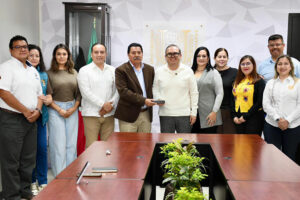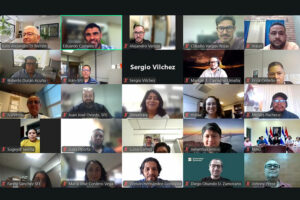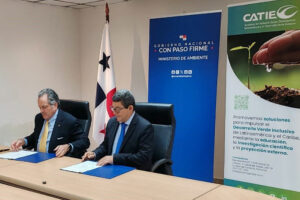CATIE hosts Third National Meeting of Costa Rican Indigenous Women

- For three days, around 100 women from all over Costa Rica and other countries participated in a series of activities as part of the Third Meeting of the National Alliance of Indigenous Women and the International Indigenous Women's Day.
Indigenous women representing most of the peoples and territories of Costa Rica, as well as other countries such as Guatemala, Panama, Ecuador, Peru, and Bolivia, participated in the Third Meeting of the National Alliance of Indigenous Women (ANAMUI), held at the CATIE campus from September 3 to 5.
The meeting, which brought together around 100 women, featured various activities aimed at strengthening the Alliance, which seeks to represent and support these women's struggles and proposals in different areas.
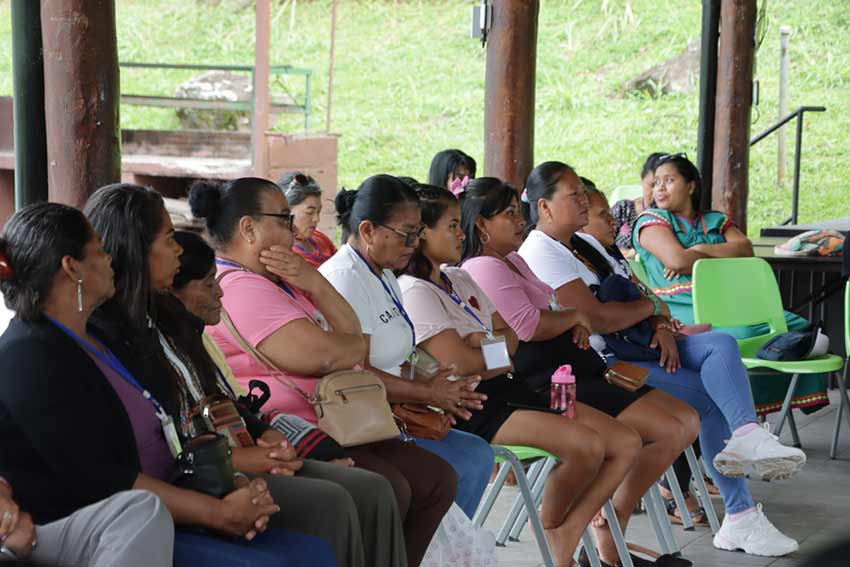
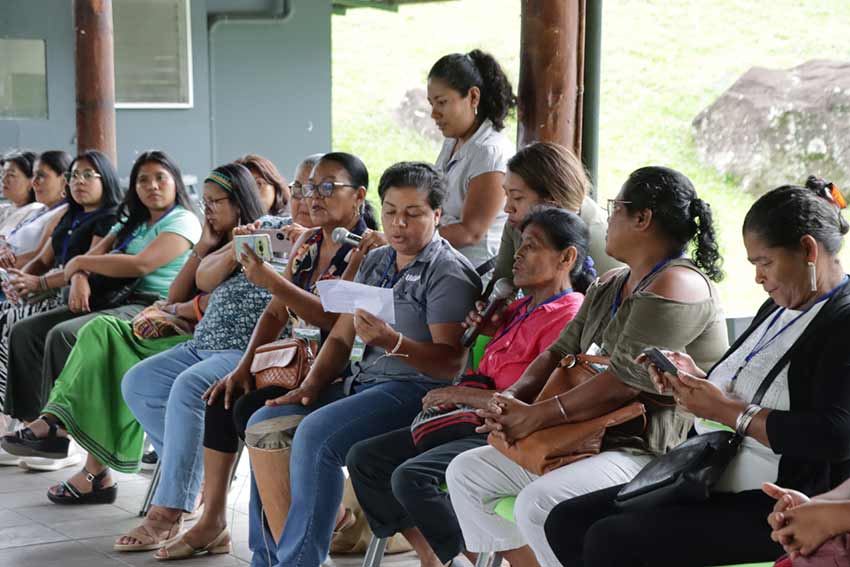
“This is a collaborative initiative between the country's eight nations and some other territories to give these women their own voice and their own history, since women are largely responsible for preserving culture and language. The idea is to collectively pass on this knowledge to new generations,” explained Ileana Moya, Cabécar leader of the Alto Chirripó community.
One of the most important activities during the meeting was the intercultural dialogue between state authorities, academia, and other institutions with indigenous women, with the aim of building a joint agenda that integrates the visions, proposals, and priorities of the indigenous peoples of Costa Rica.
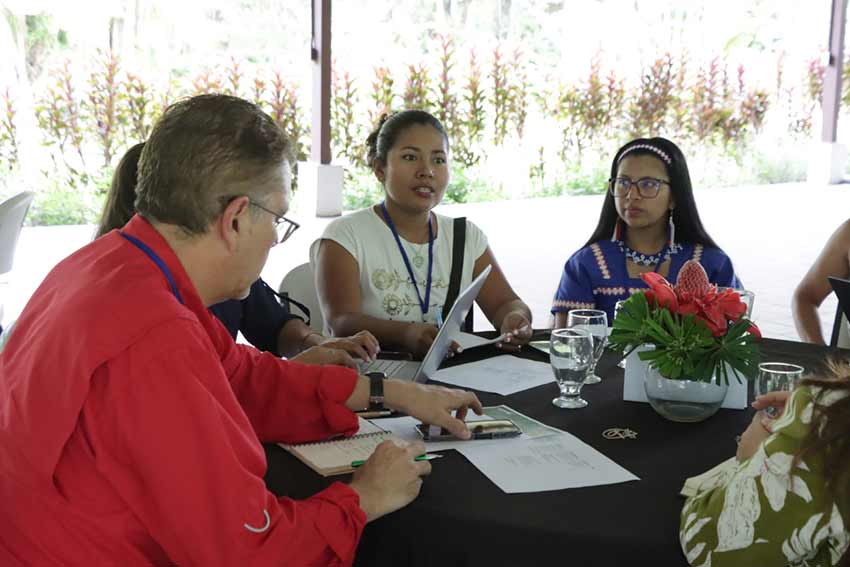
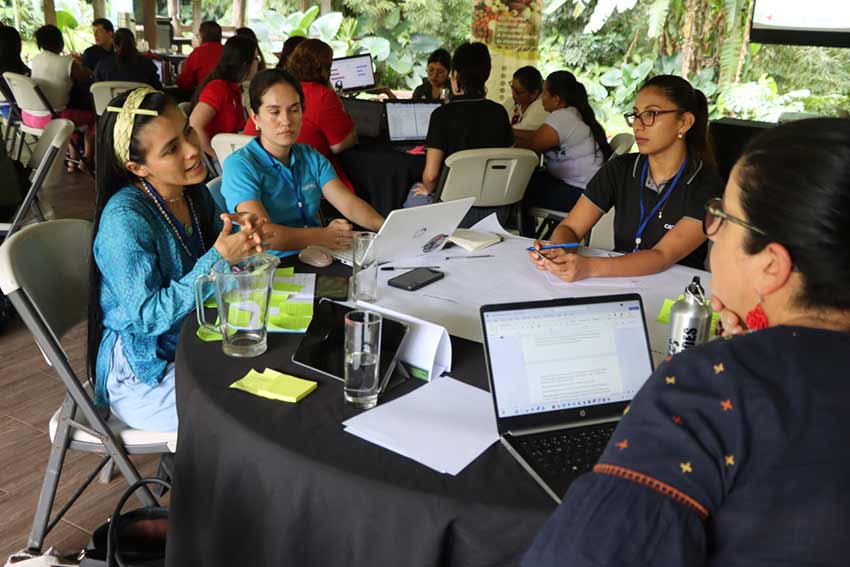
“Indigenous women face a significant gap in participation in different spaces, and one of the major challenges we still face is making our voices heard in the different areas where the Costa Rican government works with indigenous peoples,” said Moya.
“It is important for us to organize ourselves, because often we only receive what the state or other organizations, often led by men, decide for us. One of our goals is to be able to have a dialogue about the issues that affect indigenous women in the country and begin to seek solutions,” added Reina Salguero, from the Cabécar Tayni territory.
“Through the Alliance, we feel supported on different issues, how we see them and reflect them to institutions from our perspective and our knowledge,” said Thalía Jiménez, from the Ngäbe territory of Sixaola.
The roundtable discussions addressed topics such as education, the status of women, entrepreneurship and employability, technology and communication, agriculture, and youth. CATIE provided support for this activity by moderating the discussions and documenting the agreements reached.
The talks concluded with the signing of an agreement in which government institutions recognize the National Alliance of Indigenous Women as a key organization with which future discussions will be held to develop a joint agenda.
Another important activity was an exercise to recognize the strengths and challenges of the Alliance, as well as to map and assess the territory. A discussion entitled “Inspiring Women: Indigenous Women Leaders Sharing Experiences” was also held, where indigenous women from other countries shared their experiences and lessons learned in the struggle for the inclusion of indigenous women.
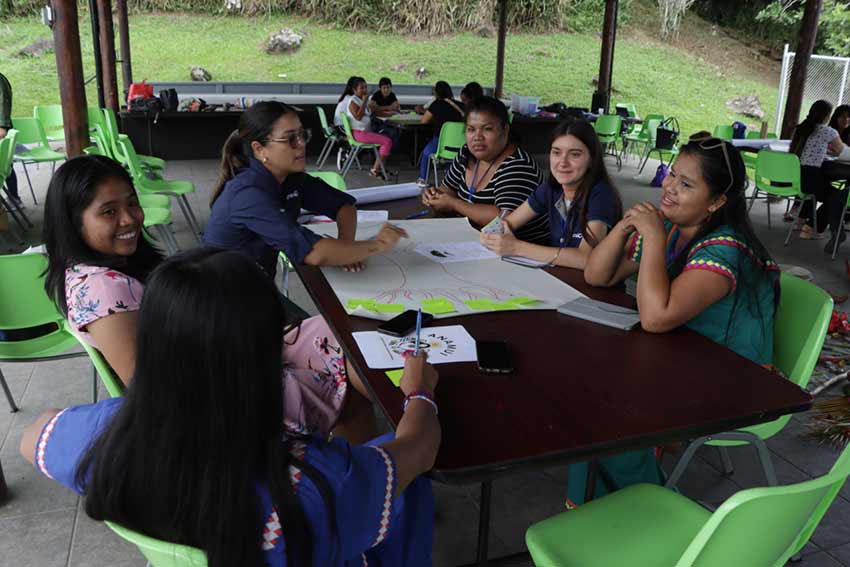
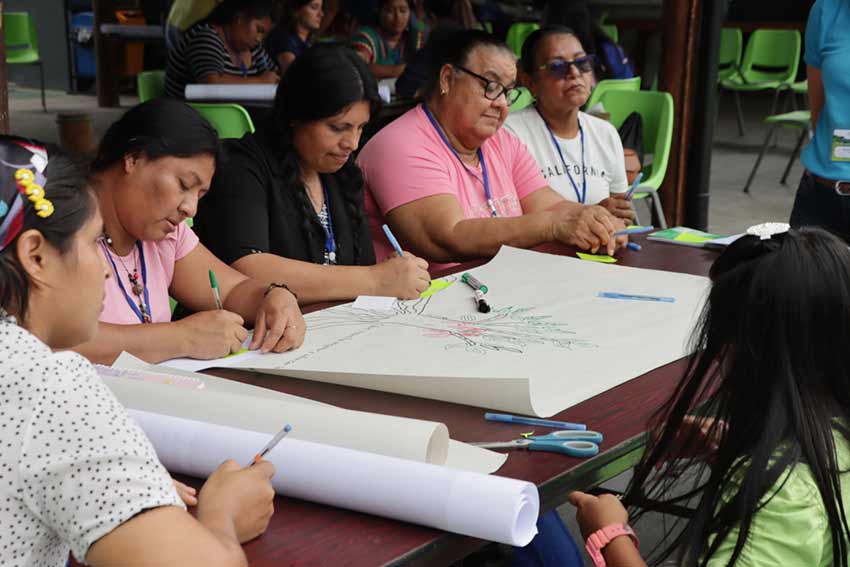
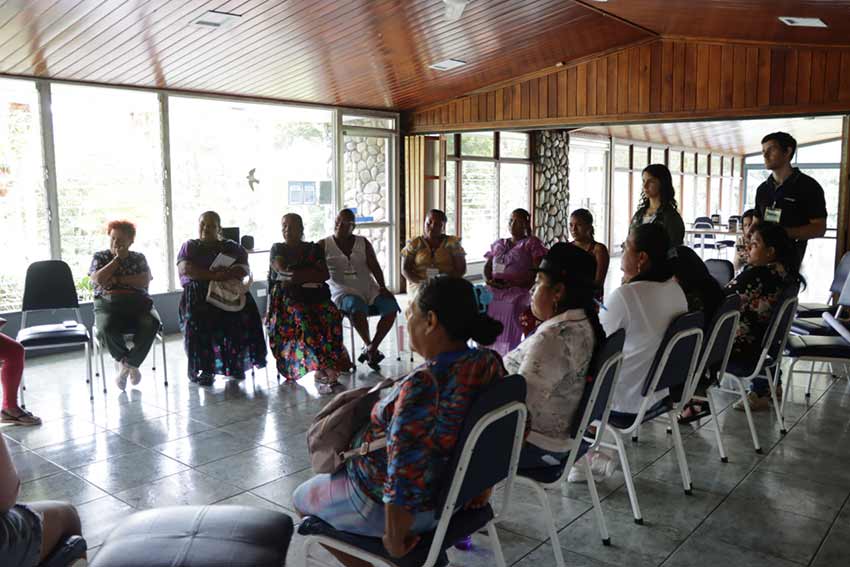
Finally, as part of the actions to raise the Alliance's profile, a day of exchange was held with international cooperation agencies such as GEF, UNDP, UNESCO, and the embassies of Germany, Bolivia, Canada, and the United Kingdom, where some of ANAMUI's thematic priorities were presented and cooperation institutions were urged to work more closely with indigenous peoples to finance culturally relevant projects.
Commemoration of the International Indigenous Women's Day
As part of the meeting, the third day focused on commemorating the International Indigenous Women's Day, which began with a traditional ceremony. In addition, the activity featured Bribri and Cabécar dances and a Huetar ceremony, among other activities, such as a fashion show with Ngäbe skirt designs, ending with the traditional Jegui dance of the Ngäbe-Buglé people, in which all attendees were invited to join in.
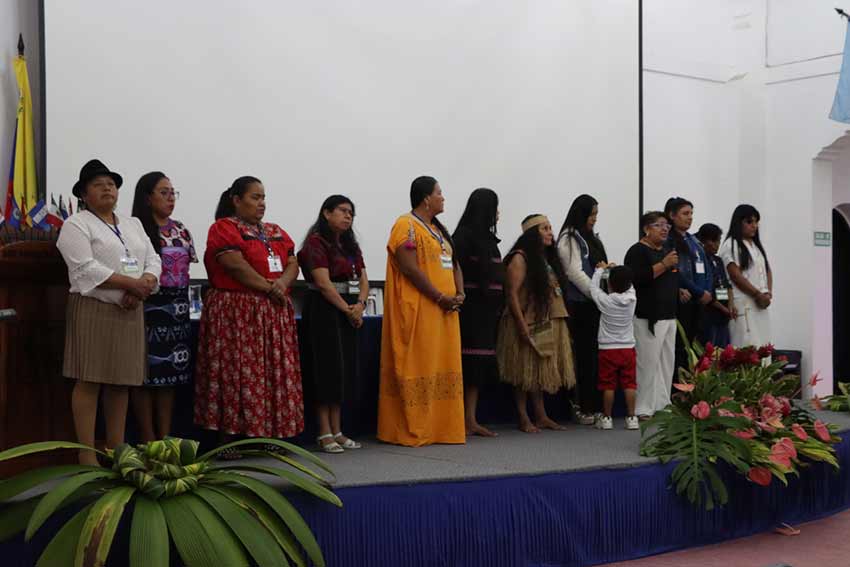
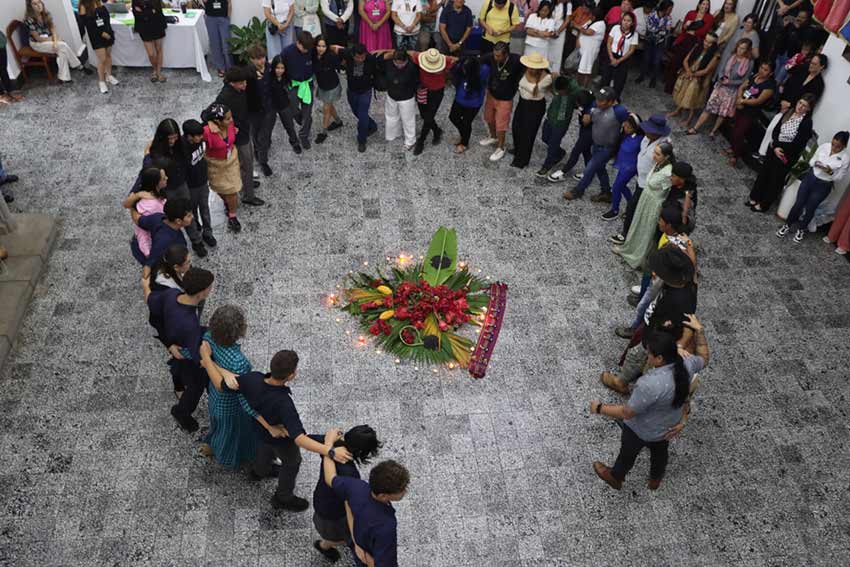
Subsequently, the Orton Memorial Library hosted a photography exhibition and craft fair entitled “Here we are, we are living heritage: faces, strengths, and memories of indigenous women in Costa Rica.” The exhibition compiled profiles of 25 women leaders from different territories, who through their stories highlighted the work and commitment that indigenous women in Costa Rica currently maintain with their communities.
As part of the event, the craft fair gave the public the opportunity to discover and purchase unique products and pieces made by indigenous women, including organic foods, paintings, jewelry, textiles, and various handicrafts. This space allowed visitors to recognize and appreciate the talent, creativity, and cultural richness that these women convey in each of their creations.
The exhibition and craft fair highlighted the leading role of indigenous women in defending their culture, territories, and livelihoods, showing that they are truly part of Costa Rica's heritage.
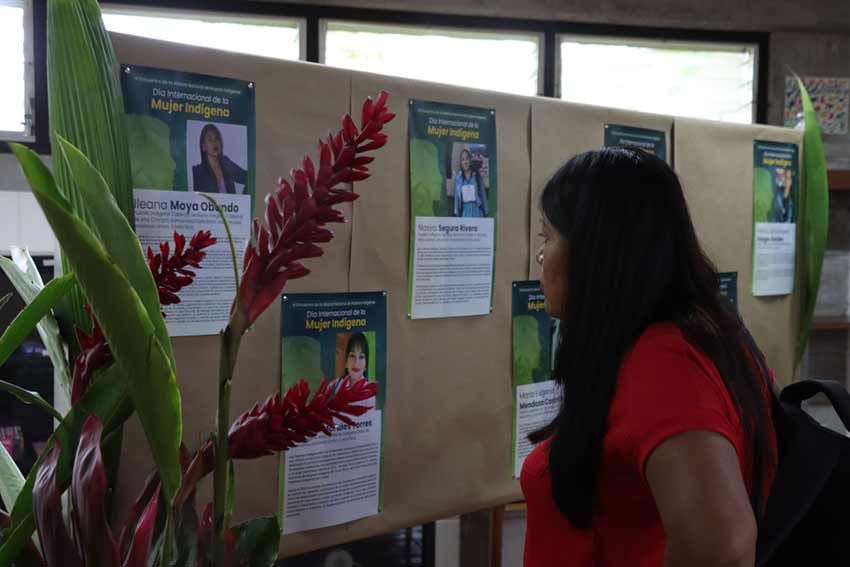
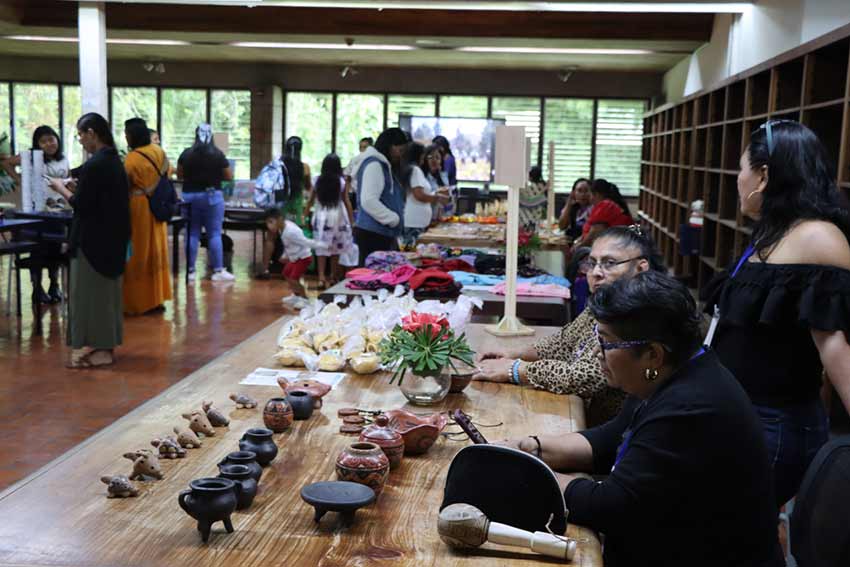
Finally, the meeting concluded with two panels on “Paths of Indigenous Leadership: Stories of Women from the Americas” and “Indigenous Women of Costa Rica in Decision-Making Processes.” In these panels, women shared their challenges, experiences, and reflections based on their own experiences.
For Juana Segundo Sánchez, from the Bribri territory of Keköldi, the meeting was “very substantial, because although it may seem that all peoples have the same problems, we can also find positive things, which is why we are grateful to share our own knowledge and that of other peoples, so that it is not forgotten.”
For her part, Rosa Álvarez, from the Maleku territory, agreed on the importance of sharing and dialoguing with women from other peoples and territories, since they are often not well represented at the national and international levels.
CATIE's Rural Development and Indigenous Communities Unit will continue to provide technical support to ANAMUI, as well as follow up on the proposals for action developed during the intercultural dialogue roundtables.
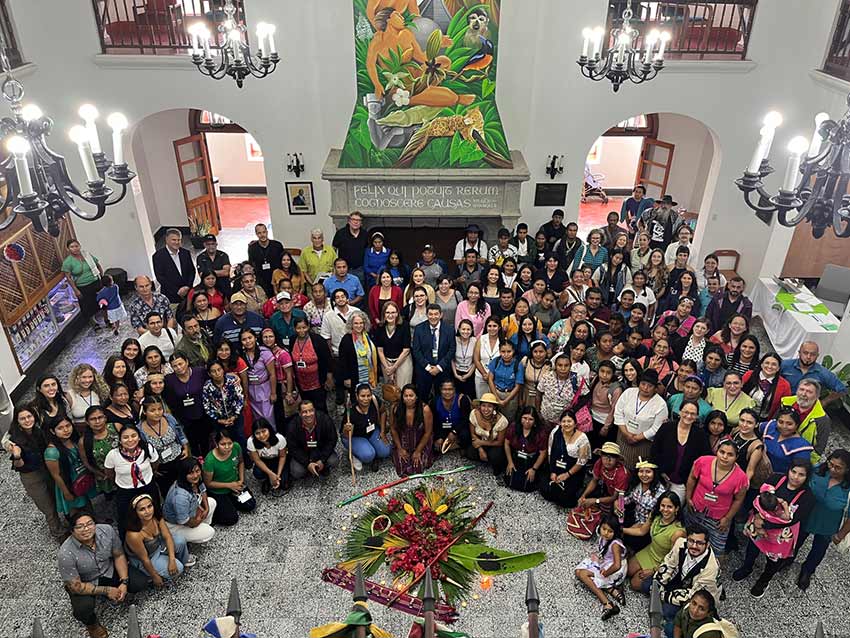
More information:
M.Sc. Karina Poveda Coto
Coordinator, Rural Development and Indigenous Communities Unit
CATIE
karina.poveda@catie.ac.cr
Written by::
Alejandro Portilla Navarro
Communicator
Communications and Marketing Office
CATIE
alejandro.portilla@catie.ac.cr

